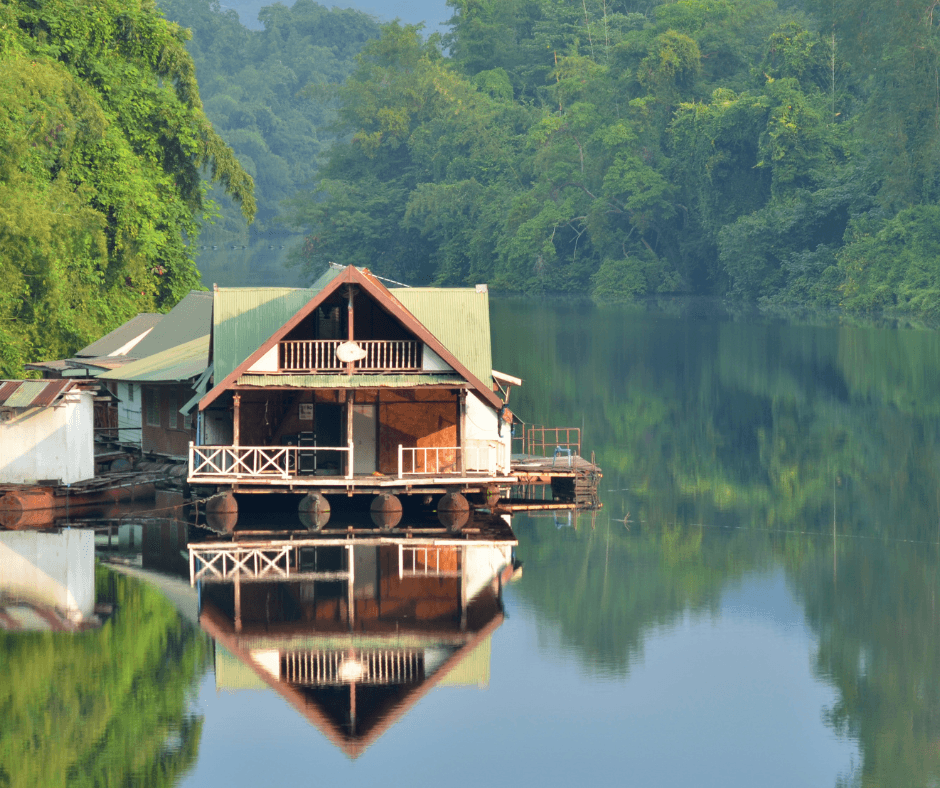Houseboat Maintenance – A Challenging Task or a Good Habit?
Owning a floating home requires different care and maintenance compared to traditional houses and apartments. Although different, it is not complicated, but it should certainly not be neglected. Quality care of your floating home will ensure its long service life and prevent major repairs and failures of internal systems.

Floating house, Canva image
How challenging is it to maintain a houseboat, and what are the essential factors for its durability?
The trend of floating houses has been growing significantly in recent decades. Both are due to the limited space for construction and the numerous benefits that living in them offers.
Choosing a floating house is a significant step in your life. Still, it's essential to remember a crucial fact: owning such a type of building requires a different approach and maintenance than is typically the case with apartments or houses.
The fact that a floating house is located on the water, and that its maintenance is different from other residential buildings you have encountered so far, does not have to be a reason to give up on the idea of moving or investing in it in general.
Water, a medium full of life, wears out much faster, but with regular maintenance, the process of deterioration is stopped and brought under control.
Although there are several types of floating houses, from those that are without engines and anchored to the shore and resemble a ship, to various variants that look like houses only built on a pontoon or even on fixed poles, in general, the instructions for all types are more or less similar, although not without differences.
In this blog, we will introduce you to the world of floating house maintenance, providing guidelines on how to properly maintain your floating house and ensure an extended, happy stay without major technical issues.
How to service a floating house
Hull cleaning: This is an essential item to include in your annual service. Regular hull maintenance, including the cleaning of algae and shells, is necessary because various microorganisms like to inhabit the hulls of boats and other floating objects, thereby disrupting their aesthetics.
Hull inspection: Be sure to inspect the entire object for any cracks or signs of wear and tear. If you notice any cracks, you must react immediately and arrange for repairs to prevent water ingress.
Engine and mechanical systems: If your floating house has a propulsion engine installed, schedule its regular service to prevent possible failures.
Plumbing system: Inspect pumps, water tanks, and all pipes and hoses for leaks and damage. Inspect for any external damage caused by weather conditions or mechanical impact. Clean water tanks and ensure they are properly disinfected to prevent the growth of harmful microorganisms.
Wastewater system: Inspect the system itself to ensure the sewage system is functioning correctly. If you are connected to a tank, check for cracks in it.
Other equipment: Your floating house is held in place by ropes and anchors. Hire a diver to check the condition of the ropes and change them if necessary. Also, check the condition of the fenders if your floating house is located near other floating objects.
Maintaining the interior of your floating home
Cleaning: The close proximity of water also increases humidity within the building and increases the likelihood of microorganism growth. Clean the interior of the building regularly to prevent mold. Consider installing a dehumidifier.
Upholstery and equipment: Check for signs of wear on deck chairs and other seating and replace or repair them if necessary. Always choose fabrics adapted to buildings near the water, especially those that are resistant to moisture, sun, and wind. Wash and disinfect everything thoroughly.
Safety Equipment: Regularly inspect and maintain the condition and availability of safety equipment. Check the batteries in smoke detectors, service fire extinguishers and check the condition of life jackets.
Signal flares and signalling devices: If you have them, check whether they are in good condition and verify their expiration dates.
Seasonal Preparation
If you only use your houseboat during the season, whether summer or winter, then it needs special preparation to fully protect it from potential damage. If you do not use your houseboat during the winter, proper winter preparation is necessary to protect the plumbing and engines from freezing.
Environmental Care
Finally, every object will require the use of some type of liquid or coating that will come into contact with water. Be environmentally conscious and always choose environmentally friendly products to preserve the flora and fauna of your "yard".